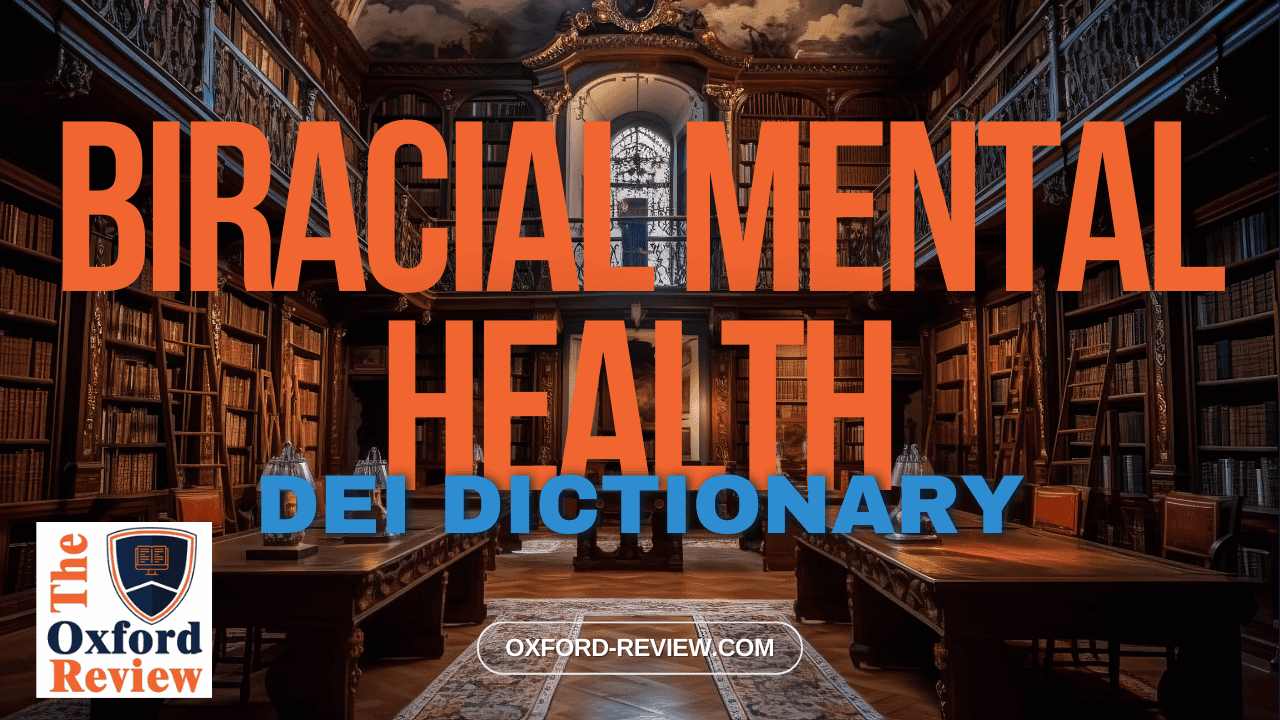Biracial Mental Health – Definition and Explanation

Definition:
Biracial Mental Health refers to the psychological well-being and challenges experienced by individuals of mixed racial heritage. As the world increasingly embraces diversity, it’s crucial to shed light on the unique struggles faced by those navigating multiple racial identities. From identity conflicts to societal perceptions, biracial individuals encounter a spectrum of mental health concerns that demand attention and support.
Exploring Biracial Identity:
Biracial individuals often grapple with a sense of belonging and identity formation. Growing up in environments where racial identity might be questioned or misunderstood can lead to internal conflicts. For instance, someone of Black and White heritage may struggle to find acceptance in both communities, feeling like they don’t fully fit into either. These identity struggles can significantly impact mental well-being, leading to feelings of isolation and confusion.
Societal Pressures and Stereotypes:
Societal stereotypes and prejudices add another layer of complexity to biracial mental health. Facing discrimination or microaggressions based on their mixed heritage can take a toll on one’s self-esteem and mental health. For example, a biracial individual might encounter assumptions about their identity or be subjected to insensitive comments about their appearance, further exacerbating feelings of alienation and marginalisation.
Intersectionality and Mental Health:
Biracial mental health intersects with various other factors, including gender, socioeconomic status, and cultural upbringing. Each of these elements can influence how individuals perceive and cope with their mental health challenges. For instance, a biracial woman may experience different societal pressures compared to a biracial man, impacting their mental health in distinct ways.
Support and Resources:
Recognising the importance of addressing biracial mental health, it’s crucial to provide support and resources tailored to their unique needs. This includes culturally competent therapy, community spaces where individuals can connect with others who share similar experiences, and educational initiatives aimed at raising awareness about biracial identity and mental health.
Example:
Biracial mental health issues are increasingly recognised as important aspects of diversity and inclusion efforts. Take the case of Sarah, a biracial woman of Black and Asian heritage, who grew up feeling torn between her two cultural backgrounds. Despite being proud of her mixed heritage, Sarah often found herself grappling with questions of belonging and acceptance, particularly in predominantly white or monoracial spaces. These struggles took a toll on her mental well-being, leading to anxiety and self-doubt. However, through therapy and connecting with other biracial individuals, Sarah found support and validation, empowering her to embrace her identity and prioritise her mental health.
Conclusion:
Biracial Mental Health encompasses the psychological well-being of individuals navigating multiple racial identities. From identity struggles to societal pressures, biracial individuals face unique challenges that impact their mental health. By fostering understanding, providing support, and promoting inclusivity, we can create a more equitable and supportive environment for biracial individuals to thrive.
References:
Gresham, M. H., & Collins, C. F. (2015). Me, myself, and I: Biracial challenges to mental health. Black girls and adolescents: Facing the challenges, 99-110. https://www.torrossa.com/en/resources/an/5524782#page=120
Holahan, C. J., Betak, J. F., Spearly, J. L., & Chance, B. J. (1983). Social integration and mental health in a biracial community. American Journal of Community Psychology, 11(3), 301-311. https://link.springer.com/article/10.1007/BF00893370
Be impressively well informed

Get the very latest research intelligence briefings, video research briefings, infographics and more sent direct to you as they are published
Be the most impressively well-informed and up-to-date person around...
